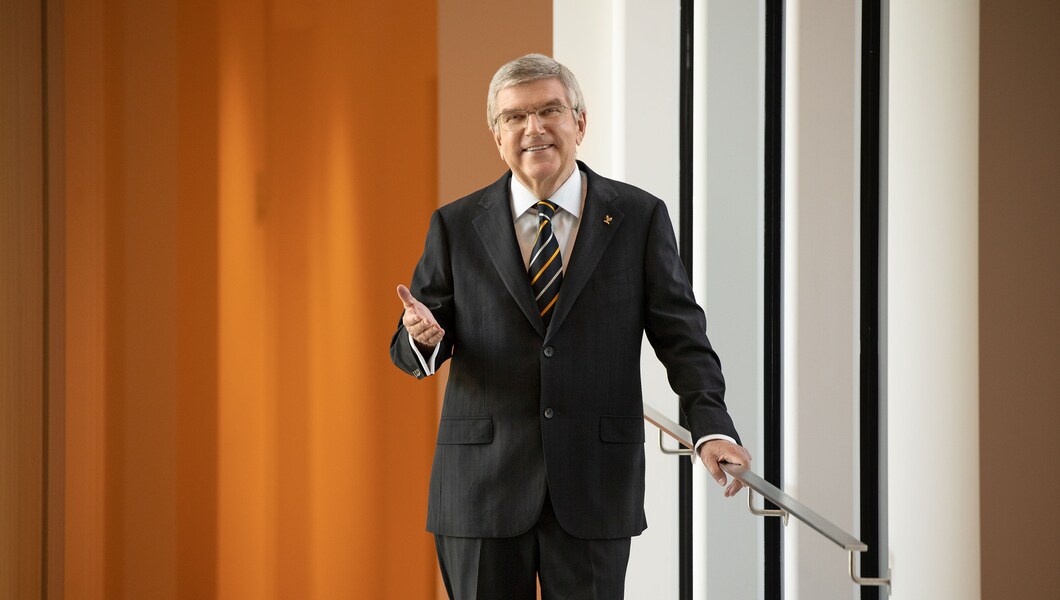INTERNATIONAL OLYMPIC COMMITTEE (IOC) PRESIDENT THOMAS BACH HIGHLIGHTED THE IOC’S INTENT TO ACHIEVE ITS PEACE MISSION THROUGH SOLIDARITY AND WITHIN THE REMIT OF THE OLYMPIC GAMES DURING HIS OPENING STATEMENT TODAY TO THE UNITED NATIONS (UN) HUMAN RIGHTS COUNCIL’S PANEL DISCUSSION.
“Solidarity means more than just respect or non-discrimination. Solidarity means actively helping, sharing and caring for one another. This is what we are doing within our remit of the Olympic Games,” President Bach explained.
“The Olympic Games are our remit. This is our responsibility. This is our commitment. As a non-governmental organisation, we have neither the mandate, nor the capability, to change laws of sovereign countries. We cannot solve human rights issues which generations of politicians were unable to solve.
“But within our remit, we take action. Not only with regard to the Olympic Games, but also with regard to our own operations. We have aligned our strategies on sustainability, gender equality and inclusion with human rights standards. We are a carbon-neutral organisation and we are committed to becoming climate-positive by 2024. We will achieve gender balance at the Olympic Games Tokyo 2020 for the first time in history, with almost 49 per cent women participating.”
Bach explained the importance of the IOC’s politically neutral stance and the Olympic Games as being an ally to all in promoting peace and human rights: “In order for our actions on peace and human rights to be successful, we need the respect of politics for our mission. Because if this is not respected, then the Olympic Games would become as divisive as so many other areas of society today. The Olympic Games would lose their unifying power, and it would just not be possible for us to bring together the world in peaceful competition.
“If sport can play a role in society today, it is precisely in strengthening the areas of cooperation for peace between nations. In this way sport can give all of us, and especially young people everywhere, hope for a better, a more peaceful future.”
Read the full speech of the IOC President.
Tokyo 2020: Unity in Diversity
Opening statements were also delivered by UN Deputy High Commissioner for Human Rights Nada Al-Nashif and Tokyo 2020 Organising Committee CEO Muto Toshiro. Muto described how the Games “should represent a place where people recognise each other's diversity and aim for a world of solidarity”.
“Athletes from all over the world gathered in Tokyo, competing under a single set of rules and with great performances, will demonstrate that our society has the potential to overcome many differences and become one. The Tokyo 2020 Games aim to be an opportunity for people around the world to reaffirm the importance of ‘Unity in Diversity’, and to create a society in harmony,” said Muto.
Muto went on to highlight the significance of sport in welcoming young people no matter what their background, and why the addition of new sports to the Tokyo 2020 programme is important in increasing the youth appeal of the Games and reflecting the younger generation’s “realities”.
Deputy High Commissioner for Human Rights Nada Al-Nashif said: “The Olympic ideal is anchored in human rights: it embodies fairness, non-discrimination, respect and equal opportunities for all. Sport promotes human rights values, as they reach billions, including young people.
“We also know that sport and sporting events have the potential to lead to human rights violations. It is therefore essential that we more consistently and deeply embed human rights considerations into the organisation and management of sport, and of sporting events, particularly ‘mega’ sporting events”, she added .
The panel discussion on promoting human rights through sport and the Olympic ideal is held every four years at the session of the UN Human Rights Council preceding the Summer Games. Entitled “The potential of leveraging sport and the Olympic ideal for promoting human rights for young people”, today’s panel discussion touched on how major sporting events, especially the Olympic Games, can raise awareness of human rights for and among young people without any form of discrimination.
A final joint statement, delivered by Greece on behalf of over 70 countries during the meeting, acknowledged the role of the Olympic Games to promote human rights and non-discrimination: “We are called upon to build forward better, bearing in mind that we are stronger together. In this respect Sport -- and the Olympic Games in particular -- can serve as a model example, where people, nations, athletes and teams take part without discrimination of any kind, such as race, colour, sex, language, religion, political or other opinion, national or social origin, birth or other status. The Olympic Ideal shows that major sporting events can raise awareness and promote a better understanding of human rights throughout the lifecycle of the event, in particular for young persons around the world.”

